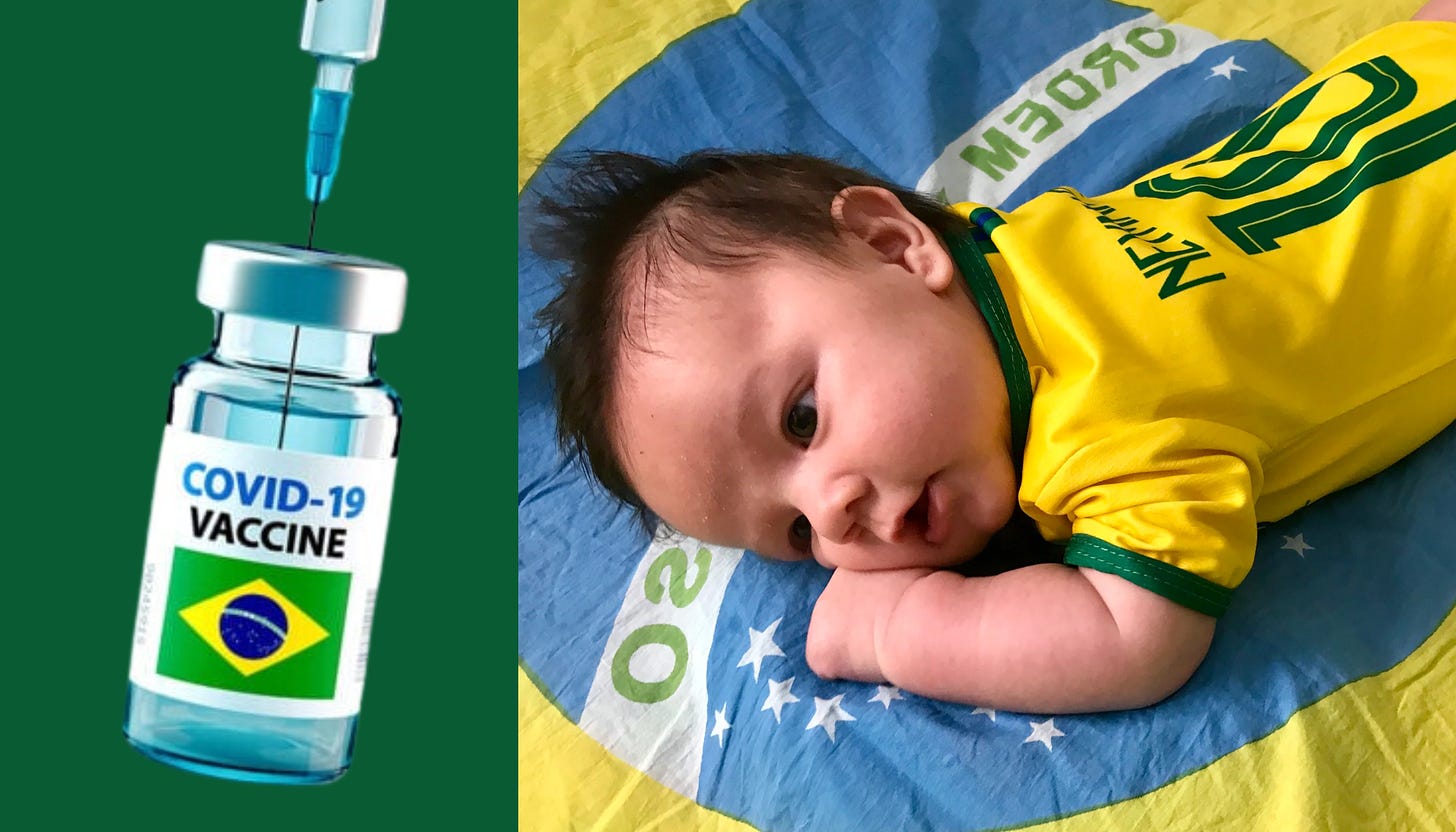Brazil to Enforce COVID Vaccinations for Children as Young as 6 Months
"Compulsory COVID-19 Vaccination for Young Children: Brazil's Controversial Initiative and Ongoing Debate"
In a significant move, the Brazilian Ministry of Health has included the COVID-19 vaccine in the country's National Immunization Program (PNI) for children aged 6 months to 5 years. This decision, reported by Agência Brasil, signifies a step towards mandatory vaccination and contemplates the establishment of strict school vaccination centers.
Scheduled to take effect in 2024, this policy adjustment has sparked opposition across Brazil. Concerns raised by experts about the safety of COVID-19 vaccines for children, along with reported cases of myocarditis, pericarditis, and other conditions among vaccinated youngsters, have contributed to the growing dissent.
Despite these concerns voiced during a recent hearing in Brazil's Chamber of Deputies and by opposition lawmakers, Health Minister Nísia Trindade defended the new policy. Additionally, the Brazilian government stated that families with unvaccinated children will not receive support from the Bolsa Família welfare program.
Alongside mandating COVID-19 vaccinations for young children, the Brazilian Senate is considering a bill proposing the establishment of vaccination centers within the nation's schools.
Aligned with recommendations from the World Health Organization (WHO), Brazil's PNI will require three doses of the COVID-19 vaccine for children. The initial two doses will be administered four weeks apart, with the third dose administered eight weeks after the second.
Notably, the available COVID-19 vaccines for children will include Pfizer’s pediatric formulation for ages 6 months to 5 years and the Chinese-made CoronaVac (Sinovac) vaccine, as reported by O Dia.
Health authorities justified the decision by citing an increase in Severe Acute Respiratory Syndrome (SARS) cases among Brazilian children. Minister Trindade highlighted over 3,000 cases identified in children under age 1 and more than 1,000 cases reported in children ages 1-4, as per O Globo.
Despite opposition, the government and several media outlets emphasized the high number of COVID-19-related deaths among Brazilian children, supporting the necessity of the measure. They cited global authorization of child vaccination in more than 60 countries since late 2021.
Nonetheless, experts, including Dr. Pierre Kory of the Front Line COVID-19 Critical Care Alliance, questioned the rationale behind vaccinating healthy children. They emphasized the low risk of severe outcomes for this demographic and the potential presence of natural immunity.
Furthermore, the enforcement of this new policy mandates compliance with the PNI and the COVID-19 vaccination requirement for eligibility in the Bolsa Família social welfare program. Failure to vaccinate children could result in fines and the loss of social benefits, according to Gazeta Do Povo.
In response to expert testimonies about vaccine safety concerns, opposition lawmaker Bia Kicis organized a hearing in the Chamber of Deputies. Specialists cautioned about fatal heart damage and other side effects linked to COVID-19 vaccines, particularly in children.
Parallel to the vaccination mandate, a proposed national vaccination program within schools is under consideration. This program would require public institutions, from early childhood education to elementary school, to participate. However, concerns about privacy breaches, parental autonomy, and potential discrimination against unvaccinated students have been raised.
As the government moves forward with these measures, there remains ongoing debate and opposition regarding the necessity and safety of mandating COVID-19 vaccinations for children in Brazil.




